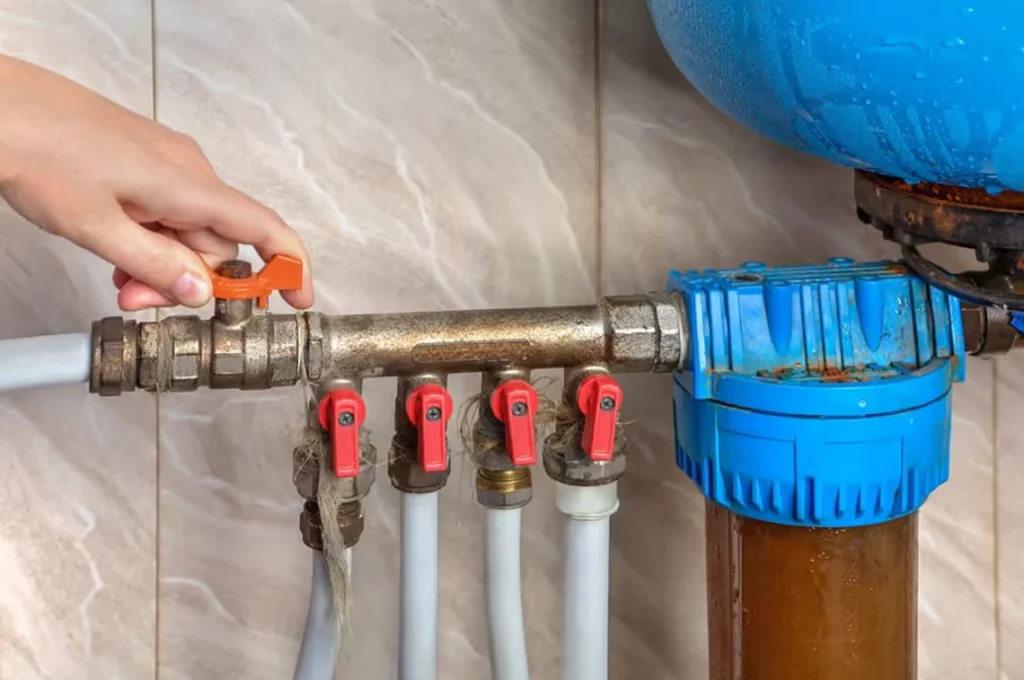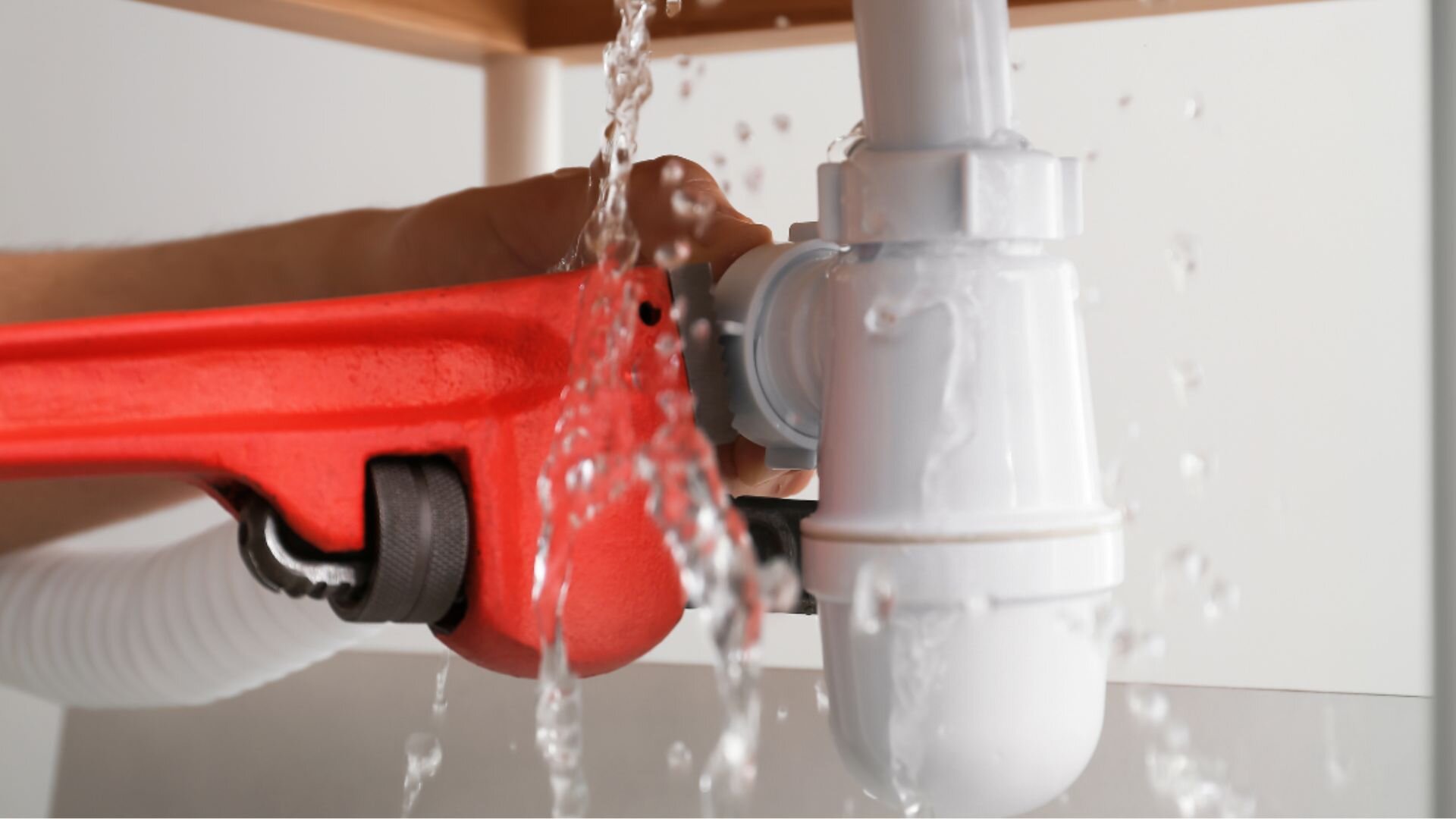This article directly below on the subject of Plumbing Emergencies: Tips on What To Do Before is amazingly attention-grabbing. You should read it.

Plumbing emergency situations can strike at any time, causing anxiety and potential damage to your home. Whether it's a ruptured pipe, a stopped up drainpipe, or a dripping tap, understanding exactly how to take care of the situation up until a specialist plumber shows up can conserve you from further complications. This article provides vital emergency situation plumbing suggestions to assist you alleviate damages and reclaim control throughout a pipes situation.
Turn Off the Water System
The primary step in any kind of pipes emergency is to turn off the water system. For local concerns, such as a leaking tap or toilet, turn off the valve near the fixture. In the case of a significant leakage or ruptured pipeline, locate your home's main water shut-off valve and transform it off quickly. Knowing the location of these valves in advance can conserve useful time throughout an emergency situation.
Address Small Leakages with Momentary Repairs
Little leaks can quickly become substantial troubles if left untreated. Utilize these momentary repairs until specialist aid shows up:
While these fixes aren't irreversible, they can assist reduce water loss and damage.
Unclog Drains Pipes Securely
A blocked drainpipe can be a discouraging and unpleasant problem. Here's just how to tackle it:
If these techniques do not work, prevent making use of excessive pressure, as it may get worse the clog.
Manage Overflowing Toilets
An overflowing commode can create immediate mayhem. Below's what you should do:
Shut down Your Hot Water Heater
In certain emergencies, such as a burst pipeline, it's important to shut down your hot water heater. This protects against overheating or damage to the system when water quits moving. Turn off the power supply to the water heater (electric or gas) and allow it cool down to stay clear of potential dangers.
Temporarily Stop a Ruptured Pipeline
A burst pipeline can lead to considerable water damages in minutes. To mitigate the concern:
Call a specialist plumber immediately to resolve the issue permanently.
Handle Frozen Piping Very Carefully
In colder environments, frozen pipelines are a typical emergency situation. If you believe an icy pipe:
Protect against Additional Damage
Taking quick activity to reduce damage can save you money and time in the future. Below's exactly how:
. Have an Emergency Plumbing Kit
Prepare a basic pipes emergency kit to handle minor concerns properly. Your package must consist of:
Having these devices available can make a significant difference in your capacity to take care of emergencies.
Know When to Call a Professional.
While quick fixes can help briefly, certain plumbing issues require prompt specialist focus. Call a plumbing professional if:.
Quickly contacting a specialist makes sure the problem is dealt with correctly and protects against additional problems.
Conclusion.
Pipes emergencies can be frustrating, yet with the best knowledge and devices, you can handle the situation effectively till assistance arrives. By shutting off the water supply, resolving little leakages, and utilizing short-term solutions, you can lessen damage and maintain your home safe. Keep in mind, these tips are short-lived services; constantly speak with a licensed plumbing technician to deal with the origin of the issue. Prep work and quick reasoning are your best allies in any kind of plumbing emergency situation.
8 Helpful Tips for Managing Plumbing Emergencies at Home
If your plumbing system hasn’t failed once, wait for it because almost everyone has a story to tell. Sometimes, it could be simple emergencies such as a leaking pipe, a blocked cistern, or even a big burst pipe. In situations like this, you need to have some handy tips to save you some money and from possible damages.
Take care of minor issues early.
Sometimes, you could have avoided an emergency by taking proactive measures while it was still early. Some major plumbing emergencies can be a result of an ignored minor issue. We recommend that you have items like plumbing tapes and other related items. A plumbing tape can allow you to manage minor leaks before the plumber arrives.
Cut off the water supply.
This tip is essential in almost any type of leakage problem. For problems like minor leakages in the toilet or kitchen, turn off the supply that takes water to the affected pipes. If the leakage is a major pipe, you must shut off the supply valve to the entire building. This will help you avoid flooding your home and neighbors if you share a flat.
Know your plumbing system
Folks typically move into a new apartment without understanding the water supply around the building. This can prove disastrous if a water emergency arises and the plumber is far away. The previous tip will prove useless if you don’t practice this one. More importantly, know where your water shut-off valve is located – you’ll need that knowledge to prevent potential home floods.
Have some common handy tools
There are lots of plumbing emergencies that you can handle without hiring a plumber. That’s why you must keep some tools available always. Some tools that you can use to fix simple plumbing emergencies easily include plumbing tapes, screwdrivers, thread seal tapes, plungers, pliers, tape measures, and rubber gloves.
Insulate your pipes from cold
You’ll save yourself from many plumbing expenses if you protect your water pipes from the cold. This is because of the harmful effects that cold weather can have on your pipes. During winter, your pipes can burst from being overly expected to freezing temperatures. So, make sure insulators are there to keep the pipes working correctly.
Avoid practices that will clog your toilet.
Many people indulge in practices that can damage the plumbing system of the entire building. One of these is when they use their toilet to dispose-off garbage. They flush all kinds of things, such as paper towels, bandages, hairs, female sanitary products, etc., down the toilet. This will block your toilet in the long run, incurring unnecessary expenditures. Dump such waste in the trash instead.
Check your dials regularly.
Sometimes, there could be leakages in your home without noticing them in time. So, constantly monitor your water meter dial. If the dial is reading when there is nobody using water, this is an indicator that there is leaking. Check for leaks immediately. Call a plumber as soon as possible if you can’t find any.
https://www.constructionplacements.com/8-helpful-tips-for-managing-plumbing-emergencies-at-home/

As a devoted reader on Plumbing Emergencies: Tips on What To Do Before, I was thinking sharing that piece of content was really useful. Are you aware of another individual who is fascinated by the topic? Please feel free to promote it. Thanks a bunch for your time. Kindly come visit our blog back soon.
Get An Estimate